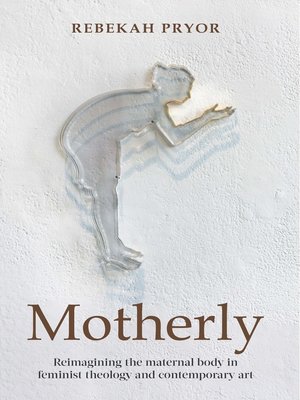Motherly
ebook ∣ Reimagining the maternal body in feminist theology and contemporary art
By Rebekah Pryor

Sign up to save your library
With an OverDrive account, you can save your favorite libraries for at-a-glance information about availability. Find out more about OverDrive accounts.
Find this title in Libby, the library reading app by OverDrive.



Search for a digital library with this title
Title found at these libraries:
| Library Name | Distance |
|---|---|
| Loading... |
How can contemporary art reimagine the body of the mother in relation to a feminist Christian conception of the divine? And, at the level of culture, what might be the implications of the maternal body imaged as ordinary, multiple, generative and divine? Following movements in her own visual art practice, and traversing the discourses of feminist theory, contemporary art and philosophy of religion, artist and scholar Rebekah Pryor considers philosopher Luce Irigaray's key notions of sexuate difference, the sensible transcendental and "love at work in thinking" on the way to proposing alternate artistic and theological motifs of the maternal body and the divine for our time. Five new motifs emerge, challenging iconographic conventions and proposing an expanded vision of the mother and the divine in feminist theology and contemporary art.|How can contemporary art reimagine the body of the mother in relation to a feminist Christian conception of the divine? And, at the level of culture, what might be the implications of the maternal body imaged as ordinary, multiple, generative and divine? Following movements in her own visual art practice, and traversing the discourses of feminist theory, contemporary art and philosophy of religion, artist and scholar Rebekah Pryor considers philosopher Luce Irigaray's key notions of sexuate difference, the sensible transcendental and "love at work in thinking" on the way to proposing alternate artistic and theological motifs of the maternal body and the divine for our time. Five new motifs emerge, challenging iconographic conventions and proposing an expanded vision of the mother and the divine in feminist theology and contemporary art.







